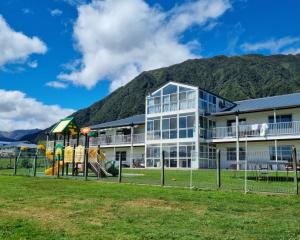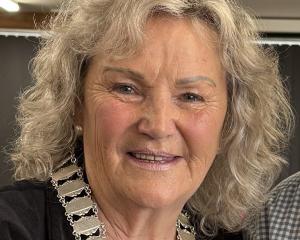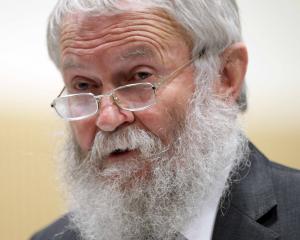
It is expected to create up to 50 jobs over the next five years and is one of the biggest investments in West Coast history.
Predator Free South Westland aims to eliminate possums, rats and stoats from a 100,000ha wedge, from the Whataroa River to the Waiho (Waiau) River, from the Southern Alps to the Tasman Sea.
It includes bush, rural land and the townships of Whataroa, Okarito and Franz Josef Glacier.
Conservation Minister Kiri Allan was in Franz Josef yesterday to make the announcement.
It came less than 24 hours after Scenic Hotel Group said it was closing all four hotels at the glacier towns, with the loss of an additional 30 jobs.
"We know this region has been particularly hard hit by the economic consequences of Covid-19 and that the community is hurting," Ms Allan said.
Predator Free South Westland was the biggest step yet on mainland New Zealand towards the predator free 2050 goal, she said.
It would be an "exemplar" for how to achieve predator-free status more widely across the country, and a massive leap from the original 12,000ha site at Perth Valley behind Whataroa in trials conducted by Zip.
The new $45million project is backed by $3million of Jobs for Nature funding, in addition to $9million from the Department of Conservation and $12million from Predator Free 2050 Ltd. Ospri Tb Free and philanthropic organisations such as the Next Foundation will contribute the balance of $21million.
It will involve aerial 1080 in the ranges, plus a range of innovative trapping, baiting and detection techniques.
Ultimately it is hoped the project will bring an end to ongoing widespread use of aerial 1080.
"Doing this work at a large scale is an opportunity to reposition this unique place in a post-Covid world, while at the same time delivering some very real social and economic benefits and creating a significant biodiversity legacy," Ms Allan said.
The project also involves local iwi Te Runanga o Makaawhio.
Rotomanu farmer and former Federated Farmers president Katie Milne heads the new group Predator Free South Westland.
"This is a massive investment in the future of South Westland," Ms Milne said.
When the possums were culled, the threat of bovine tuberculosis would be gone forever.
"That’s huge for farmers and the economy."
So far, the predator-free project (Zip) had employed 18 people in South Westland, including some who previously worked in the tourism industry.
Department of Conservation director of operations Western South Island Mark Davies, of Hokitika, said the project would have been thought impossible 10 years ago.
"The difference for our native wildlife will be immense — our taonga species such as rowi (Okarito kiwi) which have been brought back from the edge of extinction will be able to thrive in the absence of predators," Mr Davies said. — Greymouth Star











